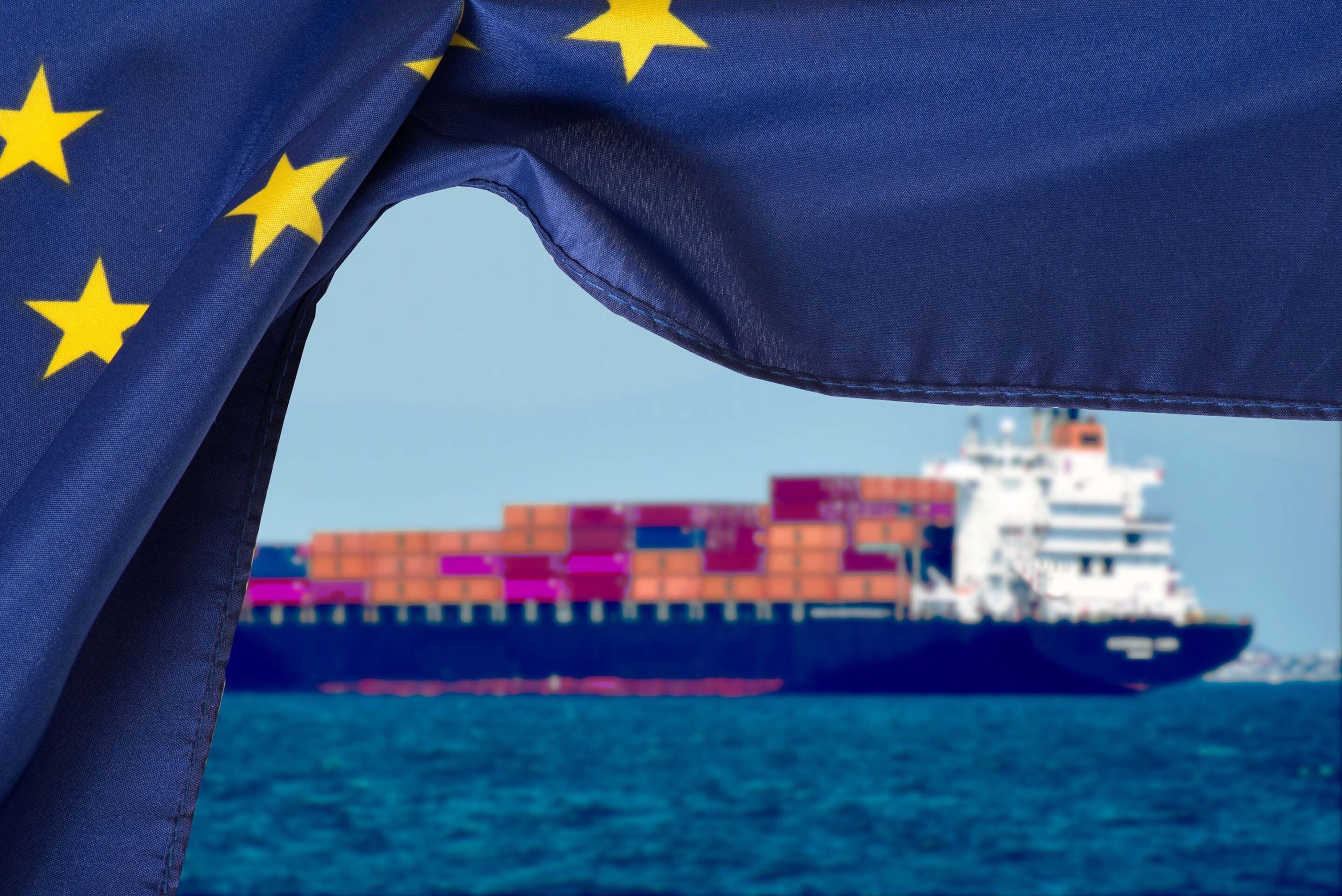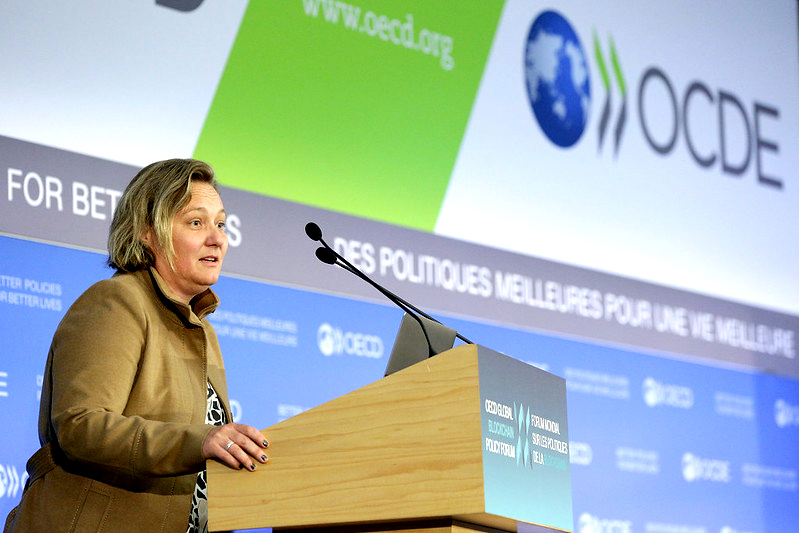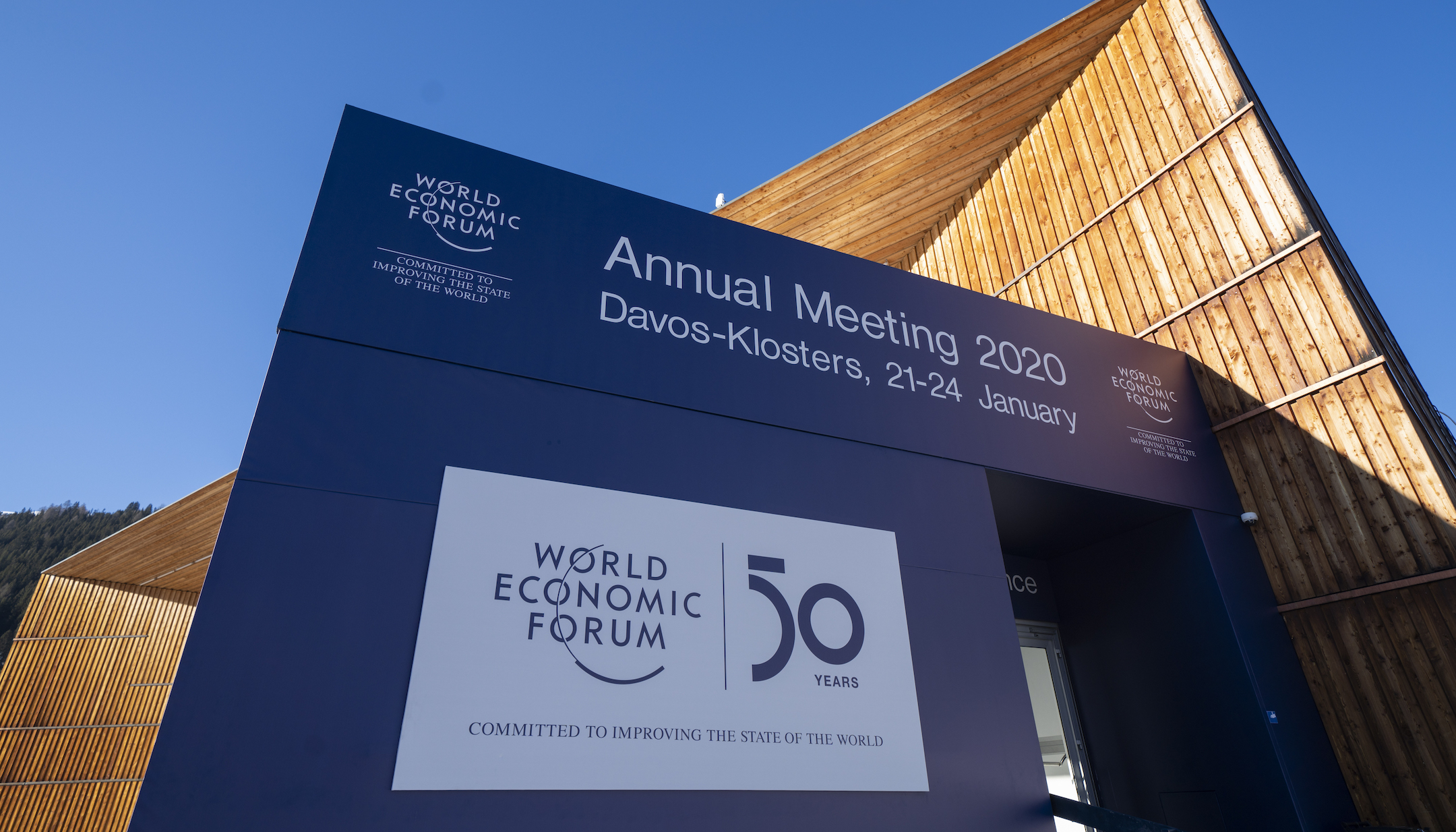Everledger CEO Leanne Kemp addresses the need for blockchain solutions and neutral platforms to nurture inclusive and sustainable supply chains.
When Malcolm McLean died in 2001, Forbes Magazine acclaimed the father of containerisation as “one of the few men who changed the world.” The legacy of his brainwave – to stack boxes on ships, rather than load individual items – is a higher standard of living for millions of people across the oceans. Manufacturers from every country owe something to his pioneering spirit. Yet, the global supply chains that connect the international trade community are facing unprecedented economic, social and environmental risks of the kind that McLean could never have envisaged.
Fully 16% of global GDP today relies on manufacturing, with the emphasis on driving the price as low as possible. The well-worn example is a fast-fashion shirt, which might contain cotton fabric, polyester thread and plastic buttons, each from a different country and transported in bulk by sea. It’s then cut and sewn in another country, packaged somewhere else and then sold to consumers. The economies of scale (and labour) keep the price tag low.
It can be argued that the success of manufacturing’s global networks – namely, the ability to affordably transport components for assembly anywhere in the world – is contributing to its potential downfall. According to a report by Accenture, almost one in three global chief executives identify supply chain complexity as one of their top business risks. Understanding the true provenance of materials and components is becoming increasingly difficult. Lack of visibility translates into business risk, especially now that society is demanding higher standards in terms of worker rights, fair pay and ethical sourcing.
The snowball effect of complex supply chains is becoming a brand headache. Even those companies that manage their provenance carefully can become tainted by growing consumer suspicion about a sector. For example, a hotel in China might think twice about buying French wine, if it reads media stories about the rise in counterfeit imports. Or a responsible fashion label might see sales dip as part of a wider industry backlash.
Therefore, the need for increased transparency and traceability in supply chains – as a way of mitigating the risks of complexity – is rapidly moving up the agenda. Blockchain technologies, as well as collaborative and neutral platforms, can offer the mutual accountability that brands need to reassure consumers and orchestrate more sustainable provenance. Information about a product’s origin, characteristics, transactional data and sustainable footprint can then be made available publicly, according to privacy settings and guidelines.
With this goal in mind, Everledger, the International Trade Centre (ITC) and cellulose fibre company Lenzing Group, in collaboration with the World Economic Forum’s Platform for Shaping the Future of Advanced Manufacturing and Production, have created a pilot platform – hosted on the ITC’s neutral site – which is capable of visualising blockchain-based supply chain data from multiple companies and sources (read more on enterprise blockchain consulting solutions).
The simulated environment enables the cross reference of supply chain information such as product origin and characteristics, which can potentially solve numerous use cases in complex supply chains, involving many different participants. In addition, information on transfer of ownership can also flow seamlessly among the members of the consortium, in a secure, immutable and private distributed ledger.
The project was motivated by a central belief in the trust-building potential for technology to help bring circular economy to fruition, tackle climate change and shape the global course of action toward prosperity and well-being for all. The World Economic Forum is now actively seeking to include more companies on the platform, creating an extensive coalition of partners dedicated to this objective.
Going forward, I’m excited to see how the interoperability of blockchain systems can minimise siloing and achieve full traceability, particularly with complex and disparate logistics and supply networks. It’s vital to have high-profile organisations like the World Economic Forum and ITC onboard as advocates for increased collaboration and coordination between relevant institutions at the international level and between different stakeholders at an industry level.
The WEF’s recent Share to Gain: Unlocking Data Value in Manufacturing whitepaper promotes the use of data management and data sharing to unlock additional value and accelerate innovation. It estimates the potential value of data sharing, simply by focusing on manufacturing process optimization and transparency, at over $100 billion, based on best practices.
This figure is further broken down into – enhancing asset optimisation ($40bn); tracking products along the value chain ($40bn); tracing process conditions along the value chain ($10bn); exchanging digital product characteristics ($10bn); and verifying provenance ($5B). The report concludes that “true masters of digitalisation not only apply their own data, but also improve existing applications by sharing data and applying new ones that would not be possible without data sharing.”
Transparency does not herald the end of intercontinental shipping. Far from it. The vision of Malcolm McLean for global trade networks remains as relevant as ever. We just need to keep them better contained. More distributed, more sustainable, more transparent and openly accountable to its impact on the planet, environment & climate.










